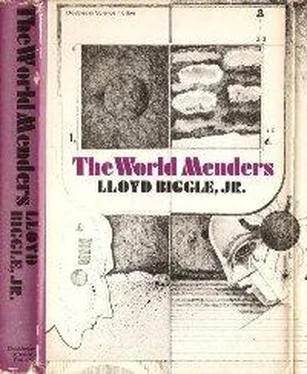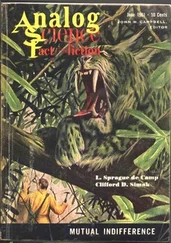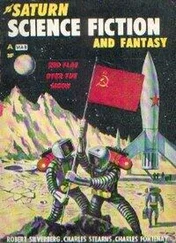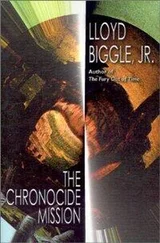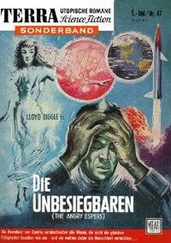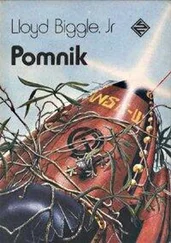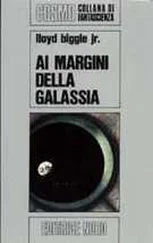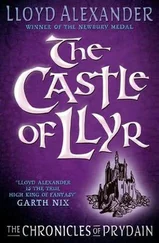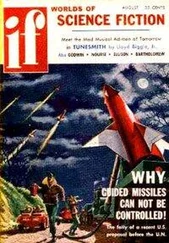Lloyd Biggle Jr. - The World Menders
Здесь есть возможность читать онлайн «Lloyd Biggle Jr. - The World Menders» весь текст электронной книги совершенно бесплатно (целиком полную версию без сокращений). В некоторых случаях можно слушать аудио, скачать через торрент в формате fb2 и присутствует краткое содержание. Год выпуска: 1971, Издательство: Doubleday, Жанр: Фантастика и фэнтези, на английском языке. Описание произведения, (предисловие) а так же отзывы посетителей доступны на портале библиотеки ЛибКат.
- Название:The World Menders
- Автор:
- Издательство:Doubleday
- Жанр:
- Год:1971
- ISBN:нет данных
- Рейтинг книги:5 / 5. Голосов: 1
-
Избранное:Добавить в избранное
- Отзывы:
-
Ваша оценка:
- 100
- 1
- 2
- 3
- 4
- 5
The World Menders: краткое содержание, описание и аннотация
Предлагаем к чтению аннотацию, описание, краткое содержание или предисловие (зависит от того, что написал сам автор книги «The World Menders»). Если вы не нашли необходимую информацию о книге — напишите в комментариях, мы постараемся отыскать её.
The World Menders — читать онлайн бесплатно полную книгу (весь текст) целиком
Ниже представлен текст книги, разбитый по страницам. Система сохранения места последней прочитанной страницы, позволяет с удобством читать онлайн бесплатно книгу «The World Menders», без необходимости каждый раз заново искать на чём Вы остановились. Поставьте закладку, и сможете в любой момент перейти на страницу, на которой закончили чтение.
Интервал:
Закладка:
“I know that,” Farrari admitted. “But when you said ‘native food’ that was the first thing I thought of.”
Jorrul wiped his eyes, brushing aside his laughter with a final, resounding chuckle. “The rascz have a gourmet society,” he said seriously. “That’s why you rarely see my agents at base. They can’t stand the food there.”
“And the olz—do they have a gourmet society?”
“The olz starve, and so do my agents when they’re living with them. But when they leave the field for a rest they don’t go to base, they come to my headquarters where they can eat.” He spoke to the transmitter. “Farrari’s never had native food. Break him in gently. No, not the stuffed torn, but save some for me.” He canceled out and sat back wearily, his eyes fixed on Farrari.
“How did you know the kru was dead?” he asked.
“I thought it was obvious,” Farrari said.
“How’d you know the moving picture was missing?”
“I didn’t. I still don’t. It seemed like one good reason for the tapestry to be hanging there.”
Jorrul got to his feet. “The worst thing about field work,” he announced, “is the waiting.”
After an hour Farrari agreed fervently. He returned to his bunk for the want of anything else to do and finally fell asleep again. When Jorrul shook him awake it was dark outside; when the platform cleared the last mountain and dipped down over the lilorr, it was midnight.
Uarrari, gazing up at the brilliant span of starlight, asked suddenly, “Aren’t there any moons?”
After a long pause Jorrul answered curtly, “No. No moons.”
Under the bright sky the land below seemed appallingly black, a vast emptiness broken only once by the distant, half-concealed red glow of a dying fire.
Finally the platform settled slowly and came to rest. Invisible hands assisted Farrari as he climbed out. Jorrul followed him, announcing with rare enthusiasm, “Field team headquarters. Now we can eat.”
V
The faint, persistent vibration could have been Farrari’s imagination, but the incessant rumble in the background was real. Jorrul ate his stuffed Porn slowly, with obvious relish, and listened to reports. Farrari ate a rich stew much more slowly—he didn’t like it—and tried to follow the conversation.
Agent 93 reported a squad of the kru’s cavalry headed up the narru, one of the finger valleys, and this fact was discussed and pondered with a seriousness that Farrari would have accorded only to a full army on the march.
Agent 176 reported a village of sick olz on the south edge of the nlorr. Jorrul sat up alertly, pushed his food aside, and wanted to know what action had been taken. When informed that the report had just been received, he hurried away to talk with base.
Enis Holt, their portly host, who had introduced himself to Farrari as 101 and added his name as an afterthought, met Farrari’s puzzlement with a smile. “The olz are in such poor health that even a mild epidemic could decimate the population,” he explained.
“The olz would be better off dead,” Farrari said firmly.
Holt’s smile broadened. “Is that the Cultural Survey point-of-view?”
“The humanitarian point-of-view.”
“No.” Holt shook his head emphatically. “The humanitarian would improve their lives, not end them. That’s also the IPR viewpoint. IPR has to consider the welfare of a civilization, too, as opposed to that of any of its components. This is the only stable civilization on the planet, and, therefore, it’s our only hope for the long-term improvement of the lives of the planet’s people. And this civilization couldn’t survive without the olz.”
“Are the rascz aware of that?” Farrari asked politely.
“No. One of our critical problems is to find a way to make them aware of it before they inadvertently extermine the olz.”
Jorrul returned, skewered another slice of the forn, and munched thoughtfully. “Next,” he said.
Holt consulted his notes. “The water level at the demc is a meter below normal. If we don’t get some rain soon, there’ll be dry wells all over the lilorr and a lot of thirsty olz. Agent 213 reports nine new durrlz assigned to the hilngol, which we more or less expected after last year’s production drop. And Agent 148 fell off his grit and sprained an ankle, the clod. Fortunately no one saw him. Then 124…”
Holt’s wife Rani, who had served their food, was hovering about the table watchfully. Farrari touched her arm and whispered, “What’s the noise?”
“Noise?” she repeated blankly. “Noise? Oh, you mean—” She chuckled. “I haven’t heard it for years. It’s with us all the time, you see. This is a mill. Would you like to see it?”
Farrari nodded. He followed her from the room. Jorrul, intent on the implications of 124’s report, took no notice of them. They descended one of the strange Rasczian stairways—the rascz were blessed with natural cement of an excellent quality but evidently had never thought to mold it into steps; their stairs were ramps with carefully-selected stones set at random. Farrari considered the stones more of a nuisance than an assistance.
The stairs ended at a balcony overlooking the mill’s cavernous interior. A single light flickered below, a burning chunk of wood floated in a stone trough filled with quarm oil. Across the huge room were two rows of double grinding stones, the upper circular with single protruding beam. Only three were in operation; narmpfz, ugly, placid creatures with enormous, powerful bodies, very little neck, and large, toothless mouths surrounded by superficial heads, plodded in patient circles straining against the beams. The stones turned on a central hub with an incessant, rasping racket.
They descended a longer stairway to the ground level. As Farrari was examining a pair of idle grindstones two young men wearing stripped apprentice aprons entered through a door at the end of the room. They nodded at Rani Holt and eyed Farrari curiously as they passed. They halted one of the narmpfz with a slap on its flank, set a wedge, and raised the upper stone with blows of a huge mallet. After they swept the coarse flour onto a cloth they scooped measures of grain from a large crock and scattered them between the stones. The narinpf waited patiently until another slap on its flank set it in motion again. They repeated the operation at the other stones, poured their meager accumulation of flour into a crock, and made their exit.
Rani Holt spoke into Farrari’s ear. “It would be so easy to introduce technological improvements. But, of course, we can’t.”
“Technology imposed from without…” Farrari muttered. He shouted at her, “It must require a lot of mills to feed the population.”
They turned down a final stairway that led to a narrow, subterranean chamber where long rows of crocks stood. She pressed against the rough stone wall; it swung inward, and they stepped through into a smaller storage room. The wall swung shut after them, reducing the noises of the mill to a dull vibration. On the far side she opened another concealed door and led him into a large, brilliantly-lighted underground room. In one corner a communications technician manned his instruments; in another a machinist shaped a piece of metal. A man and a woman were drinking from tall mugs in a small lounge near the entrance.
“Field team headquarters,” Rani explained. “Supply base, workshops, communications center. What was it you asked me upstairs?”
Читать дальшеИнтервал:
Закладка:
Похожие книги на «The World Menders»
Представляем Вашему вниманию похожие книги на «The World Menders» списком для выбора. Мы отобрали схожую по названию и смыслу литературу в надежде предоставить читателям больше вариантов отыскать новые, интересные, ещё непрочитанные произведения.
Обсуждение, отзывы о книге «The World Menders» и просто собственные мнения читателей. Оставьте ваши комментарии, напишите, что Вы думаете о произведении, его смысле или главных героях. Укажите что конкретно понравилось, а что нет, и почему Вы так считаете.
